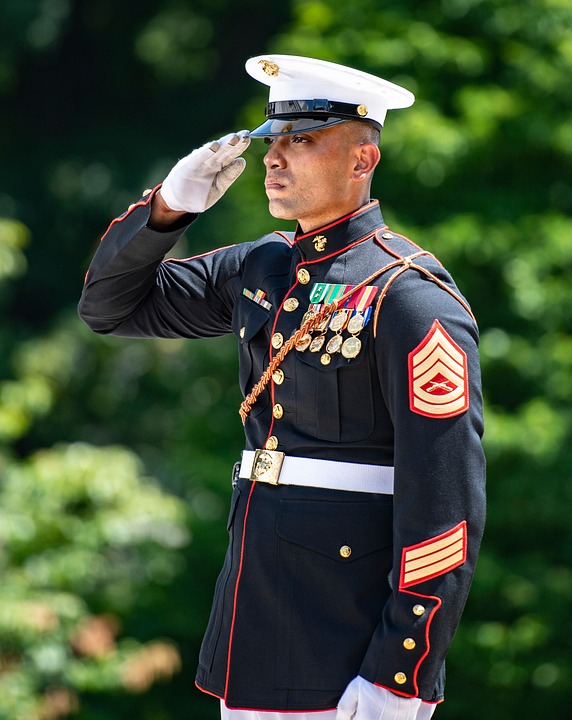Women serving in the United States Marine Corps have a long history of breaking barriers and shaping the course of military history. From their humble beginnings as clerks and nurses in the early 20th century to their combat roles in modern conflicts, women in the Marine Corps have defied expectations and proved themselves to be an invaluable asset to the nation’s defense.
Early History
The first women to serve in the Marine Corps did so during World War I, when they were brought in as clerks and telephone operators to free up men for combat duty. These women were known as “Marinettes” and were the forerunners of the Women Marines who would serve in the decades to come.
During World War II, the Marine Corps Women’s Reserve was established, allowing women to serve in a variety of non-combat roles. These women performed a wide range of duties, from mechanics and supply clerks to radio operators and aviation technicians. They played a crucial role in supporting the war effort and freeing up men for combat duty.
Breaking Barriers
Despite their contributions to the war effort, women in the Marine Corps faced many barriers and challenges throughout their history. In the early days, they were subject to strict gender restrictions and were often marginalized and overlooked. It wasn’t until the late 20th century that women were allowed to serve in combat roles alongside their male counterparts.
In 1993, the policy prohibiting women from serving in combat roles was lifted, opening the door for women to serve in a wide range of jobs within the Marine Corps. Women began to serve as pilots, engineers, infantrymen, and a wide range of other combat roles. Today, women make up about 8% of the Marine Corps, and their numbers continue to grow.
Women in Combat
In recent years, women in the Marine Corps have made significant strides in breaking down barriers and proving themselves in combat roles. In 2015, Capt. Kate Alfin became the first female Marine to successfully complete the brutal Infantry Officer Course, a test of physical and mental endurance that all infantry officers must pass. Her accomplishment paved the way for other women to follow in her footsteps and serve in combat roles within the Marine Corps.
Since then, women have continued to excel in combat roles within the Marine Corps. In 2017, Sgt. Eunice Vazquez became the first female Marine to graduate from the School of Infantry East as an infantry rifleman. Her achievement was a testament to the dedication and skill of women in the Marine Corps, proving that they are more than capable of serving on the front lines alongside their male counterparts.
Shaping History
Women in the Marine Corps have not only broken barriers in combat roles but have also played a crucial role in shaping the course of military history. From their early days as clerks and nurses to their current roles as pilots and combat engineers, women have made significant contributions to the Marine Corps and the nation’s defense.
In recent years, women in the Marine Corps have served in some of the most dangerous and challenging environments in the world, from the deserts of Iraq and Afghanistan to the jungles of the Pacific. They have shown courage, dedication, and resilience in the face of adversity, proving themselves to be an invaluable asset to the Marine Corps and the nation as a whole.
Conclusion
Women in the Marine Corps have a long history of breaking barriers and shaping the course of military history. From their early days as clerks and nurses to their current roles as combat engineers and infantrymen, women have made significant contributions to the Marine Corps and the nation’s defense. Despite facing many challenges and obstacles along the way, women in the Marine Corps have continued to excel and prove themselves in combat roles, paving the way for future generations of women to follow in their footsteps. Their dedication, courage, and skill have earned them a well-deserved place in the history of the Marine Corps and have helped to make the nation’s defense stronger and more diverse.


